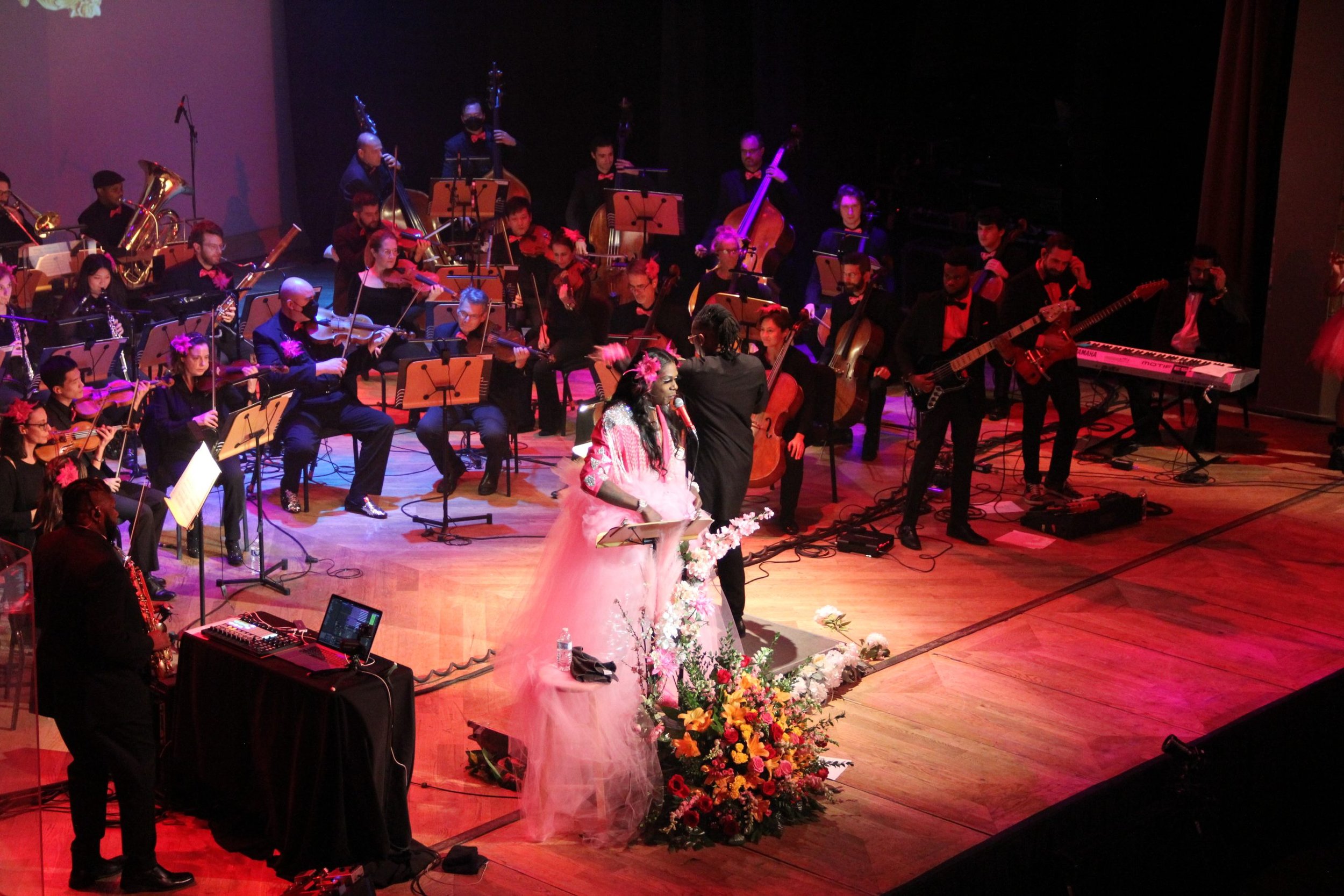Shaping Micachu

Blame a wide-ranging musical upbringing for Micachu and The Shapes.
When I asked on Facebook for questions for Micachu and the Shapes, Baton Rouge writer Alex Cook suggested, " Are they aliens who learned about rock 'n' roll from watching garbled satellite transmissions of The Banana Splits? That's my theory." Cook's response was more than standard-issue rock crit smartassery. From the start, the band that will open for Animal Collective tonight at the House of Blues has made highly unconventional pop music, starting with their choice of instrumentation. In the first moments of "Vulture," the first track on their 2009 debut album Jewellery, the distinctive, industrial whir of a shop vac can be heard, and everything on this year's Never sounds off-kilter starting with detuned guitars. Like The Raincoats, Essential Logic and other bands from the first generation of British post-punk on Rough Trade Records - Micachu and the Shapes' label - their albums sound like the work of inspired amateurs trying to make music with the limited talents and tools available to them.
But that's where the comparison ends. As odd as Micachu and the Shapes' music can seem, listen to it three or four times and the industrial elements recede and the pop becomes obvious. And the band's leader, 25-year-old Mica Levi, is no amateur. Her background is in classical music first; the noise is a choice.
"I've been exposed to all different disciplines of music in quite hardcore ways," she says. "I've had a classical music upbringing and studied classical concert music. Once I was at college [Guildhall School of Music and Drama in London], I was writing garage music in school and I got really, really deeply into hip-hop in London." Classical music isn't a conscious part of her thinking about music - in Levi's mind, old rock 'n' roll was a much stronger reference point for Never - but she acknowledges that it's in there somewhere. "It must all seed in in some way. You can't just cut off part of your experience."
Her education clearly shapes her thoughts about composition, even when she applies it to popular music. "In hip-hop, you've got limitations with the beat and not being too full of stuff, and it being a loop, and you work within that," Levi says. "Different styles have different boxes, and a box is always really useful for whatever you're writing. If you're a classical music composer, you're always trying to get the sides of your box together really strongly."
One of those formal constraints is song length. Levi's quick to point out that she has some "quite long songs," but she acknowledges that those songs are also slower. Only two songs on Jewellery pass the three-minute mark and one is shorter than a minute; on Never, "Nothing" stretches out to an epic 4:56, while "Top Floor" says its piece in 47 seconds. More than half of the album clocks in shorter than two and a half minutes.
I've got quite a bad concentration level," she says. "I'm getting a bit more patient as I grow up, but I'd listen to a song and I'd skip on to another song after I've got the idea. I can't be the only one who did that. Part of me felt like, 'Get it done in the amount of time I like to listen to music.'"
The brevity of the songs is also tied to the subject matter. In her mind, Never has a filmic, observed quality to the stories told in the songs, and the length is dictated by the nature of the story being told. "'You Know' - It's rolling along, a song about chatting someone up," Levi says. "You go at it a couple of times and then the song ends when the character being chatted up turns around and says, 'Yeah, I know.' There's not much more to say after that."
Levi's thoughts on length were also influenced by mixtapes - not the hip-hop demi-album but the DJ-like mix that pares songs down to the good part and moves on with the flow of the mix. Hip-hop also led her to 2011's Micachu and the Shapes and the London Sinfonietta's Chopped & Screwed, her attempt to recreate the murky, sluggish, cough-syrupy vibe in real time live that Houston's DJ Screw developed in the studio.
The chopped and screwed sound interested her as a fan, but it also tapped into another formal constraint to consider - speed, and what happens when you slow things down. She wrote the music while on the road with the idea that it would be played with the Sinfonietta, a group that specialized in 20th Century avant-garde music. For it, she worked in instruments that she created with her roommate, a plumber with the tools and skills properly fit pieces together.
"Instrument-creating with bits and bobs," Levi starts. "When I was in my late teens, I got interested in Harry Partch, and he did his own thing. It seemed so logical to me. If you're making your own music, why not make the instruments you're making them on?" Unfortunately, her homemade instruments are too fragile to travel with, and because they're largely acoustic instruments, they're tough to use in concert settings. It's not much of a sacrifice on this tour to travel without them because as alien as Never can sound, those instruments played only a small part in its making. Never is what it is because of what the band plays, not what they play it on.
Thoughout this conversation, Levi speaks offhandedly about her music. When pressed, she can trace the roots of her own sense of adventure. "It's a product of listening to the history of 20th Century music in relation to studying classical composition," Levi says. She started experimenting with electronic music at an early age, recording what was at hand - often her voice - in unusual ways, then cutting it up and reassembling in musical ways. "Because of doing that, using anything as an instrument was already instilled in my brain as normal, and it had been normal in music for ages and ages and ages and ages."
Because it's been a part of her normal for so long, it doesn't seem novel or adventurous to her. "I'm just following my nose, y'know?"






